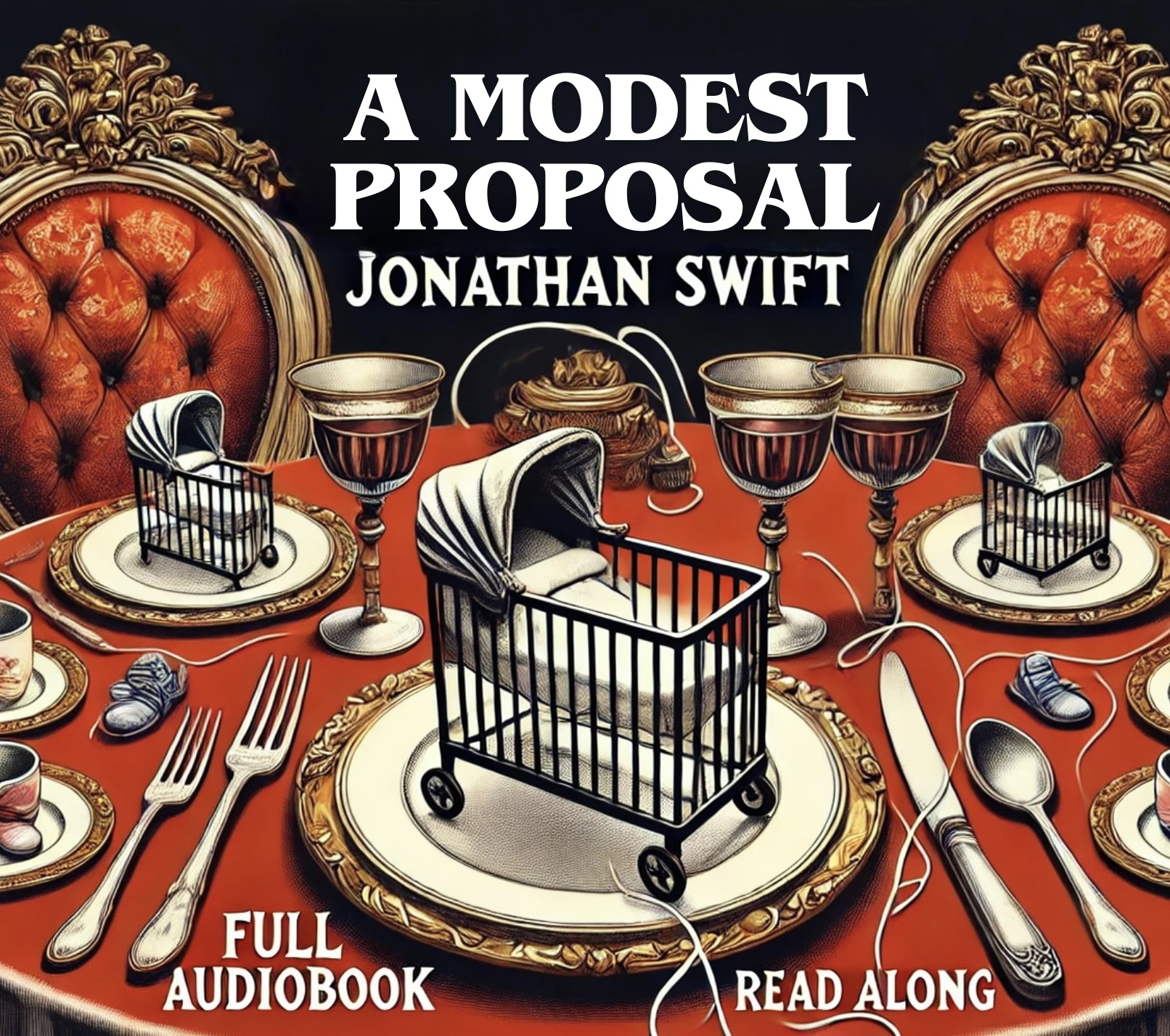Jonathan Swift’s A Modest Proposal (1729) remains one of the most powerful examples of satire in English literature. At first glance, the essay appears to offer a horrifying solution to poverty in Ireland: the sale and consumption of impoverished children. However, beneath its shocking surface lies a scathing critique of British policies and societal indifference toward the suffering of the Irish poor.
Understanding the Satire
Satire is a literary device that uses irony, exaggeration, and ridicule to expose and criticize human vice or folly. In A Modest Proposal, Swift adopts the voice of a cold, calculating economist who proposes an unthinkable solution with unsettling logic. His suggestion—that poor Irish families should sell their babies as food to the wealthy—mimics the heartless reasoning often used by politicians and economists of the time.
The essay is not truly about eating children. Instead, it highlights the extreme conditions in Ireland, where British policies and landlord exploitation had left many in starvation. Swift’s exaggerated “proposal” forces readers to confront the inhumane attitudes toward the poor that were already present in society.
Why Did Swift Write This?
In the early 18th century, Ireland was under British control, and its largely Catholic population suffered from oppressive laws that favored Protestant landlords. Poverty was rampant, and English policies did little to alleviate the suffering of the Irish people. Swift, an Irish Protestant clergyman and writer, was deeply critical of both the British government and the wealthy elite who ignored or exploited the poor. His essay serves as a brutal wake-up call, demanding that society recognize the moral failure of treating human suffering as an economic issue rather than a humanitarian crisis.
The Lasting Impact of Swift’s Proposal
Swift’s essay remains relevant today, as societies still struggle with economic inequality, government neglect, and debates over how to address poverty. A Modest Proposal reminds us that sometimes, the most shocking statements are necessary to provoke real discussion and change.
Swift’s brilliance lies in his ability to use dark humor to reveal uncomfortable truths. His work challenges readers to consider their own role in societal issues and to question policies that treat people as mere statistics rather than human beings.
Final Thoughts
Is satire always meant to be humorous, or can it also be dark and unsettling? Swift’s A Modest Proposal shows that satire can take on a deeply disturbing tone to drive its message home. By shocking his readers, he forces them to see the true horror of the situation he describes. More than just an essay, it remains a timeless critique of indifference and systemic failure.
What do you think—does satire like this still have the same power today?
🎧 Watch Now: 👉 A Modest Proposal – Full Audiobook https://youtu.be/HjB705TkVf4
《一個溫和的建議》:喬納森·斯威夫特對貧困與政策的黑色諷刺
喬納森·斯威夫特(Jonathan Swift)的《一個溫和的建議》(A Modest Proposal,1729)至今仍是英語文學中最具影響力的諷刺作品之一。表面上,這篇文章似乎提出了一個令人髮指的解決方案來應對愛爾蘭的貧困問題:將貧困兒童出售並供富人食用。然而,在這駭人的表面之下,隱藏著對英國政策及社會對愛爾蘭窮人苦難漠不關心的嚴厲批評。
理解諷刺手法
諷刺是一種文學手法,透過諷喻、誇張和嘲諷來揭露和批判人類的惡行或愚蠢行為。在《一個溫和的建議》中,斯威夫特以一位冷酷、精於算計的經濟學家的口吻,提出一個令人震驚但看似合乎邏輯的建議。他的主張——讓貧困的愛爾蘭家庭將嬰兒賣給富人作為食物——模仿了當時政客和經濟學家經常使用的冷血理論。
這篇文章並非真的在鼓吹食人行為,而是突顯了愛爾蘭的極端困境。在英國政策和地主剝削的影響下,許多愛爾蘭人陷入饑荒。斯威夫特誇張的「提議」迫使讀者正視社會對窮人的不人道態度,這些態度早已深植於當時社會。
斯威夫特為何寫這篇文章?
18世紀初,愛爾蘭受英國統治,其主要的天主教人口飽受偏袒新教地主的壓迫性法律之苦。貧困普遍存在,而英國政策對改善愛爾蘭人的困境幾乎無所作為。身為愛爾蘭新教牧師和作家,斯威夫特對英國政府及無視或剝削窮人的富裕階層深感不滿。他的文章是一記無情的警鐘,要求社會承認其道德失敗,不應將人類的苦難僅視為經濟問題,而應視為人道危機。
斯威夫特的建議帶來的影響
這篇文章至今仍具現實意義,因為各國仍在為經濟不平等、政府怠忽職守以及如何解決貧困問題而掙扎。《一個溫和的建議》提醒我們,有時候,最震撼的言論才能引發真正的討論和變革。
斯威夫特的卓越之處在於,他能夠運用黑色幽默來揭示令人不安的真相。他的作品挑戰讀者反思自身在社會問題中的角色,並質疑那些將人視為統計數字而非個體生命的政策。
最後的思考
諷刺作品是否一定要幽默,還是可以帶有黑暗和令人不安的色彩? 斯威夫特的《一個溫和的建議》表明,諷刺可以採取極端的方式來強化訊息。透過震撼讀者,他讓人們真正看清自己社會的殘酷現實。這不僅是一篇文章,更是對冷漠與體制性失敗的永恆批判。
你認為,這樣的諷刺在今天仍然具有同樣的影響力嗎?
🎧 Watch Now: 👉 A Modest Proposal – Full Audiobook https://youtu.be/HjB705TkVf4

Leave a Reply